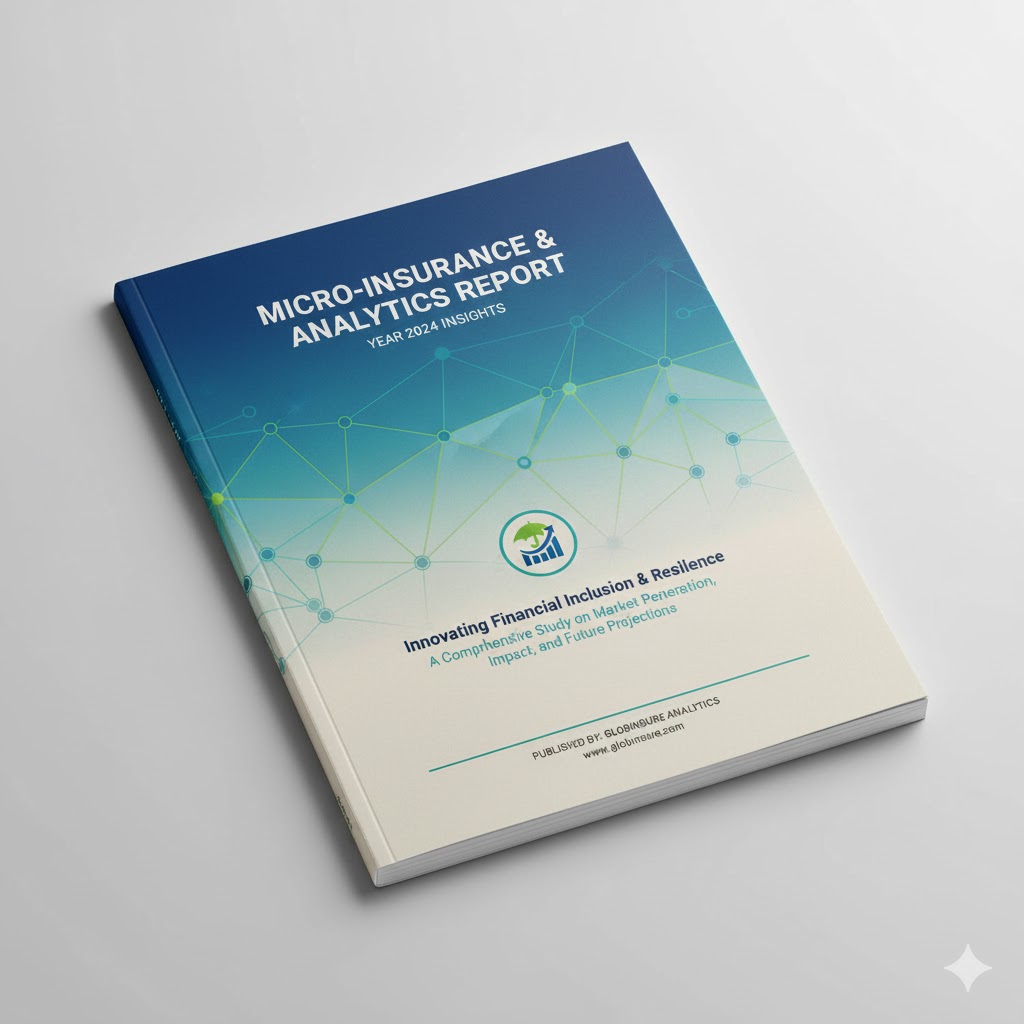Displaying 16 - 30 of 31

Making Access to Insurance Happen for People with Disabilities and Small Businesses and Micro-entrepreneurs
WFP piloted an inclusive weather-index insurance scheme for ~4,800 people in El Salvador, targeting women entrepreneurs and people with disabilities. The product enabled fast payouts during climate shocks and removed traditional credit-based enrollment barriers.

Making climate risk microinsurance work. Case Study: Green Delta Insurance Company (GDIC), Bangladesh
Making climate risk microinsurance work: Green Delta Insurance Company in Bangladesh. This case study explores the origin, design, and delivery of Green Delta's agricultural microinsurance program. It reviews pricing mechanisms, subsidy structures, operational challenges, delivery models, and real-world performance results. The analysis offers key lessons for building climate resilience through private-public partnerships in emerging markets.

Making climate risk microinsurance work. Case Study: Philippine Crop Insurance Corporation (PCIC), Philippines
Case study of the Philippine Crop Insurance Corporation (PCIC) and its role in climate risk microinsurance. This diagnostic overview outlines PCIC's origin, goals, and subsidy model, and examines the challenges and performance of its delivery system. The paper also highlights pricing strategies, key operational hurdles, and practical lessons learned — contributing to a broader understanding of how public sector agricultural insurance can support resilience in Asia.

Making Microinsurance Work, Scale2Save Learning Paper
Making Microinsurance Work: This learning paper by Scale2Save explores the challenges affecting the uptake of microinsurance across emerging markets. Drawing from real-world case studies in Côte d'Ivoire and Nigeria, it identifies key barriers and presents practical strategies to boost adoption. The report highlights innovative distribution approaches, customer education tactics, and partnership frameworks that drive scale and sustainability for inclusive insurance services.
Date Issued
2021
Topics
Products
Region

MALAYAN INSURANCE, PHILIPPINES - The case for insuring women for a better tomorrow
This World Bank report analyzes how Philippine insurers adapted to COVID-19 and how their inclusive insurance models helped maintain resilience for over 38 million microinsurance policyholders. The study highlights product innovations, digital transformation, and lessons for future crisis response through inclusive insurance strategies.
Date Issued
2020
Topics
Region

OKO for UN WOMEN & UNCDF: Case study
An index-based crop insurance product tailored specifically for women smallholder farmers in Mali. This inclusive approach improves gender equity and strengthens financial protection for rural women by providing climate-resilient risk coverage. The model aims to address both agricultural vulnerability and structural gender gaps in access to insurance.
Date Issued
2022
Topics
Region

Promoting access to insurance for people with disabilities and small and micro entrepreneurs – The case of El Salvador
In El Salvador, most small farmers and micro-entrepreneurs face frequent economic and climate shocks without adequate insurance. To bridge this gap, the World Food Programme and local partners are piloting an innovative insurance solution covering over 950 farmers and micro-entrepreneurs (46% women) against business interruption caused by excess rainfall, drought, or earthquakes.

Rashtriya Swasthya Bima Yojana (RSBY) – India
India's national public health insurance scheme for the poor, offering smart card–enabled, cashless hospitalization to over 37 million low-income families. This flagship initiative aims to enhance access to healthcare and financial protection for the most vulnerable populations across the country.
Date Issued
2015
Topics

Segurísimo, developing inclusive insurance in Colombia
SEGURÍSIMO is a low-cost, easy-to-claim modular insurance product designed to serve vulnerable and traditionally excluded populations in rural areas. It offers coverage for both the policyholder and the beneficiary, emphasizing accessibility and inclusivity. The product's modular design allows flexibility in tailoring benefits, and its streamlined claims process helps reduce barriers to access. This case reflects an impactful initiative in Colombia aimed at enhancing social protection for underserved groups.
Date Issued
2022
Topics
Products

Social Finance Brief: MiCRO - The Microinsurance Catastrophe Risk Organization
Social Finance Brief on MiCRO, focusing on their approach to agricultural insurance in Latin America. Highlights innovative financial solutions tailored to vulnerable farming populations, operational strategies, and key implementation insights drawn from regional experience.
Date Issued
2022
Topics
Products

Social Finance Brief: Pacífico Seguros
Social Finance Brief on Pacífico Seguros in Peru, outlining their experience in delivering non-life (property) insurance solutions. The brief explores product innovation, operational models, and lessons learned through collaboration with ILO Impact Insurance and MiM, focused on strengthening financial resilience through non-agricultural property coverage.

The Growth of Inclusive Insurance in Zambia
Details how Zambia created an inclusive insurance ecosystem through coordinated efforts and industry-wide stakeholder engagement. Zambia's Technical Advisory Group (TAG) led a structured process to align stakeholders, catalyze innovation, and grow the microinsurance market.
Date Issued
2016
Topics
Products
Region

The impact of the health microinsurance M-FUND on the utilization of health services among migrant workers and their dependents in Thailand: A case-control study
A 2024 case-control study evaluating M-FUND, a microinsurance scheme for migrant workers in Thailand, showing increased health service usage among insured populations.
Date Issued
2023
Topics
Products
Region

Towards universal health coverage in Vietnam: a mixed-method case study of enrolling people with tuberculosis into social health insurance
Vietnam piloted enrolling TB patients into social health insurance to advance universal health coverage. While 76.5% were successfully insured, barriers like paperwork, delays, and costs left many uncovered. The study highlights the need for more flexible and patient-friendly enrollment systems.
Date Issued
2024
Topics
Products

WFP Nicaragua – Insurance and Social Protection: A Key Tool to Increase Resilience and Food Security in Nicaragua
WFP Nicaragua implemented a risk-layered insurance approach through the R4 Rural Resilience Initiative and sovereign CCRIF coverage.
Date Issued
2023
Topics
